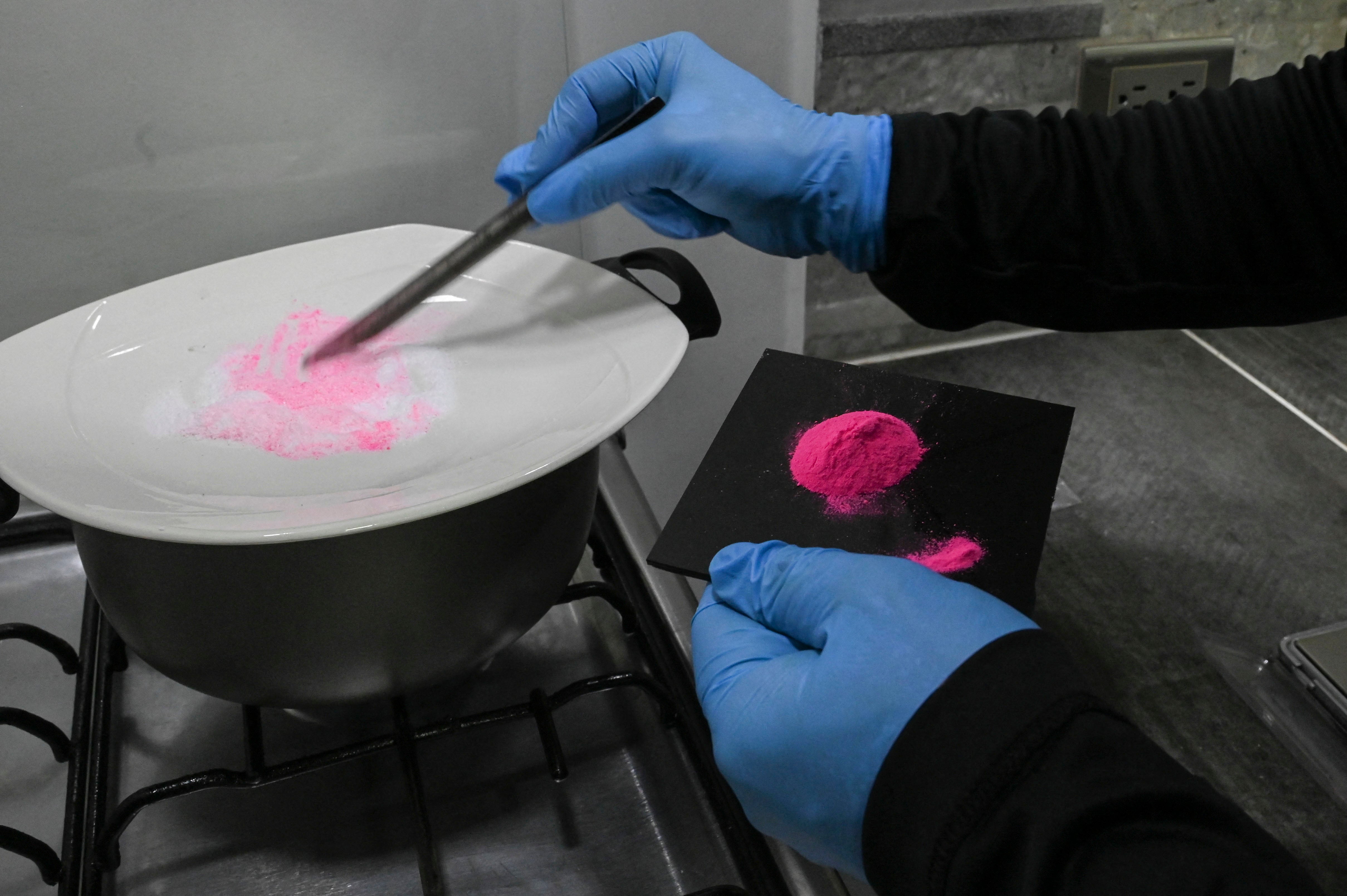A modern drug cocktail linked to the death of popstar Liam Payne is prompting concern from health officials as it spreads around Europe.
The former One Direction star had reportedly taken the mixture of drugs known as ‘pink cocaine’ before his death. A partial autopsy turned up all the drugs that comprise the cocktail, an anonymous Argentinian source familiar with the toxicology report told the Associated Press.

Crack cocaine and benzodiazepine were also said to be present in Mr Payne’s system at the time of his death. The 31-year-old musician was on a trip to Argentina when he fell from a hotel balcony and sustained fatal injuries.

Tributes have been pouring in for the singer, including from his former One Direction bandmates who say they were “completely devastated” by his death.
Here’s everything you need to know about the drug mixture linked to Mr Payne’s death:
What is pink cocaine?
‘Pink cocaine’ is a synthetic mixture of drugs which typically does not actually include cocaine. The three most common substances that can be found in it are MDMA, ketamine and 2C-B.
MDMA, or ecstasy, is a common party drug with stimulant and minor psychedelic properties. Ketamine, which is similarly popular, is a powerful anaesthetic with dissociative, sedative and hallucinogenic effects.
2C-B is a less commonly known substance. It is a potent psychedelic drug with hallucinogenic and stimulant effects. MDMA and 2C-B are both Class A drugs, while Ketamine is Class B.

This dangerous drug cocktail makes for an incredibly potent experience. It has been linked to a growing number of drug-related deaths in recent years.
The drug is typically found in powder or pill form and is recognisable for its vibrant pink colour – artificially added to make it more appealing.
A key expert concern around pink cocaine, sometimes known as ‘tusi’, arises from the unpredictable mix of substances, each carrying its own risks. While the name may suggest to users that they will be taking cocaine, it will likely be several other drugs.
The inclusion of ketamine is of particular concern, as abuse of the substance can lead to loss of consciousness and difficulty breathing which can lead to death in some cases.
Dating back to the 1970s, the drug resurfaced in its modern form in Colombia around 2010. It quickly grew to popularity in Latin America, and has now spread to Europe.
Pink cocaine has gained a reputation as a ‘designer drug’ in recent years, and is marketed as a high-end product at around £76 per gram, according to a report.

